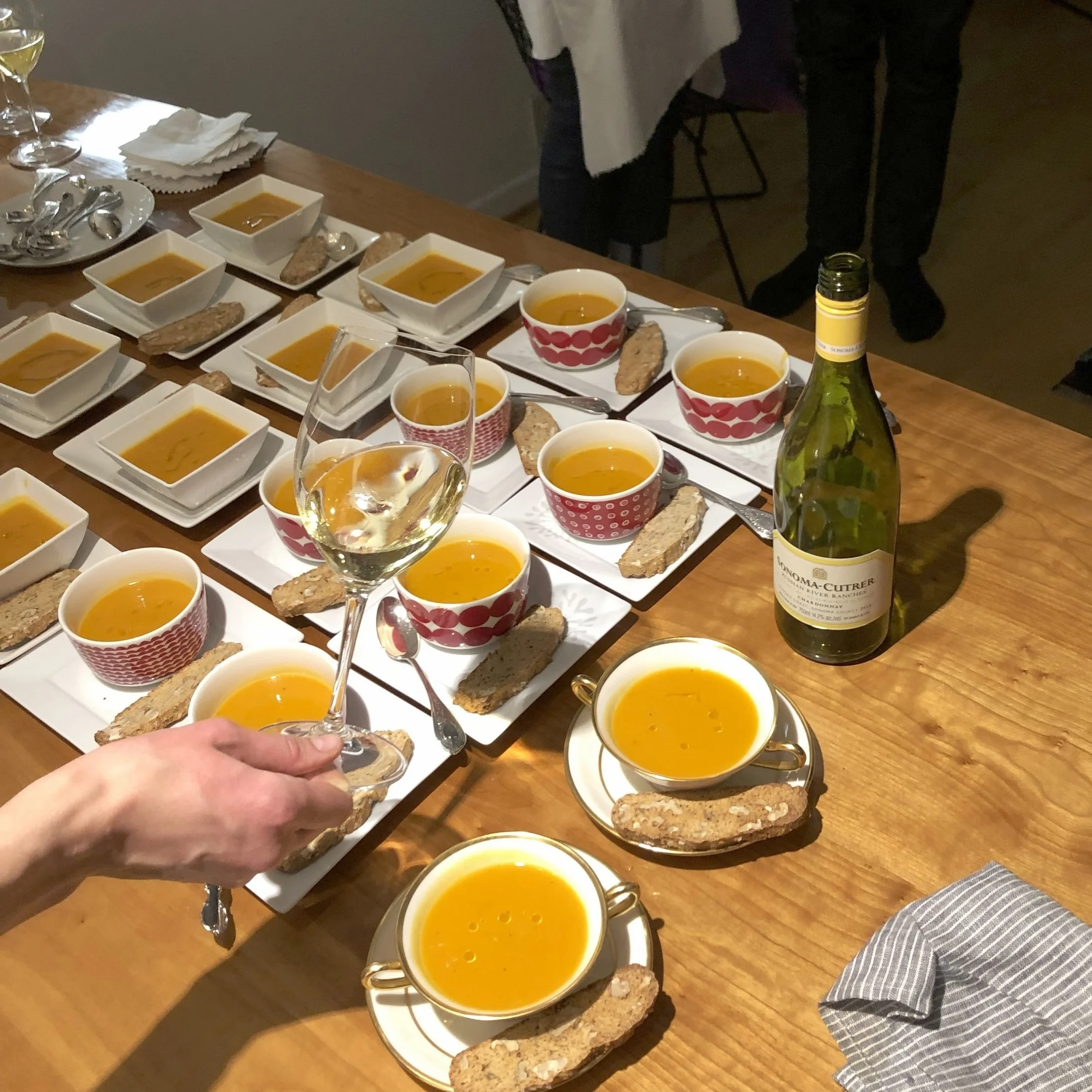Slowly opening a can of worms
I live a busy lifestyle that oftentimes is fueled by coffee. Good coffee. Usually brewed at home to my specifications on bean quality, roast and grind levels. Truly I didn’t start drinking coffee much until I started cooking, and when it became a ritual activity it became so much more than a reason to pause for a few minutes. At many times throughout my career I have been on kitchen teams that stopped for coffee breaks at 10am no matter what, pulling chairs to a table in the kitchen to embark on a check-in or topic of the day discussion. This is a time that holds many fond memories. It was a chance to bring who we are outside of work to the table.
I’ve been embarking on thoughts about ethical foodservice. It began last year with a growing passion to point out how we serve each other. While that holds the theme to a project for another day, today I am thinking about how we make ethical decisions in our food purchases and how our choices affect communities beyond our immediate self.
The value of community-building has weight. Enough weight that an occasional coffee drinker becomes committed to the cause of what coffee breaks can do for us busy humans. The anticipation of time spent in community is what drives us forward. For example, while I value a good night’s sleep, I anticipate my morning coffee. Alternatively, I am happy to trudge through a tough day, in anticipation of being able to spend the evening with my family. I value quality products and community.
What if I start digging into the products I value and find out that while they build my community, my support of that product does not actually support the community it came from. That the grower can’t even cover their expenses? Yup, there’s my can of worms. This is a big topic with lots of opinions and problems but let me tell you, it is worth opening.
My first exposure to Fair Trade* certified food products was when I was a part-time sales rep for a wine importing company. I was thrilled to have a value-priced quality product that could actually fit into a Manitoba market that was about to embark on a new wine segment. It was exciting and concerning all at once when I began to dip into the ethical practices behind what simply is a food product. Is it my responsibility as a consumer to be sure I am paying a supplier who ensures that the growers can pay their bills, feed and educate their families and afford health care?
While everyone has a personal perspective on value for any given product we can purchase, our eyes can quickly be opened when the reality of what is or isn’t happening is revealed. I think we 1st-worlders tend to value a deal and just hope we are doing right. We want to expect the stores we frequent are making ethical purchases so that we can easily make our “good” decisions. But in fact that is our job as stewards of the earth God created for us to care for, and to love our neighbors enough to be sure their human needs are being taken care of.
So will you join me in opening your can of worms? I caution you to open your can slowly and to realize now that yes, we all support things we don’t realize we are supporting. Now is a good time to start pulling out those worms and begin making purposeful decisions that can direct change.
*Fair Trade is a way of buying and selling products that makes certain that the people who produce the goods receive a fair price.



